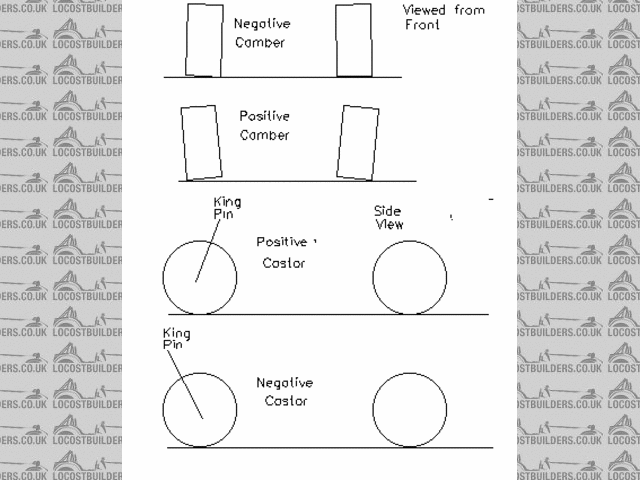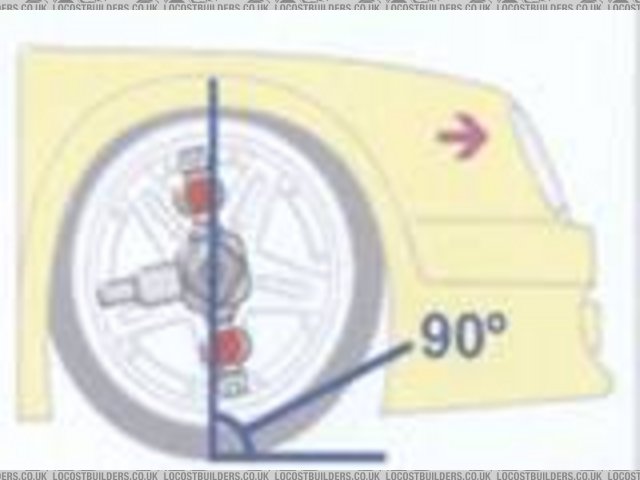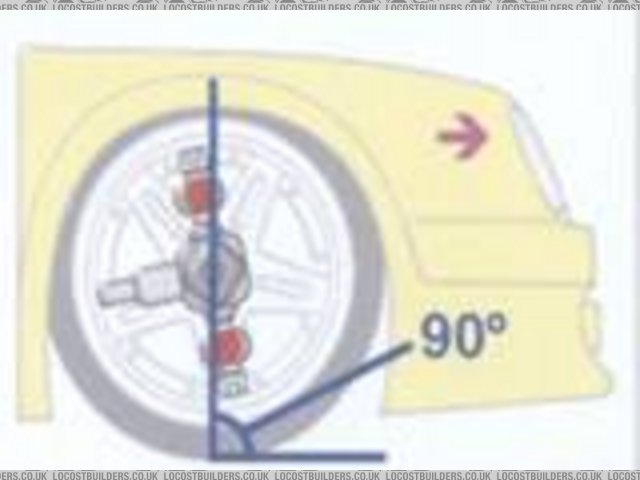
Do i want Negative or Positive castor?

Looking at Dave Andrews page i saw this:

Do i want Negative or Positive castor?
Negative for self centering 
quote:
Originally posted by britishtrident
quote:
Originally posted by mookaloid
Negative for self centering
No positive --- the drawing is wrongly labled

assuming the king pin line is the front wheel, negative castor angle.|
The more king pin inclination hence castor angle the more mechanical trail which gives you self centering hence steering stability.
Ok. How much do i need and how will i measure it when fitting brackets?
The drawing is wrongly labeled
quote:
Originally posted by mookaloid
Negative for self centering
Not often Dave Andrews gets it wrong but this how it should be.
Negative caster is used on some front wheel drives -- Mainly BL Minis to give stability while accelerating.
Positive caster for RWD car -- light cars need more than large cars.


Rescued attachment fronta.gif
http://crcc.org.uk/rc-technical.php
http://en.wikipedia.org/wiki/Caster_angle


Rescued attachment positive-caster.jpg
quote:
Originally posted by mikeb
assuming the king pin line is the front wheel, negative castor angle.|
The more king pin inclination hence castor angle the more mechanical trail which gives you self centering hence steering stability.
quote:
Originally posted by speedyxjs
Ok. How much do i need and how will i measure it when fitting brackets?
quote:
Actually isn't king pin inclination the angle when viewed from the front?
hi
i get a bit woried when you read a post like this one, some of the guys giving advice and i assume building a car seem to be a little short of the
correct terms / skills ?
looking at the car from the front, draw a line through the centre of the top and bottom ball joint and that is your king pin inclanation, castor is
when you look at the same line from the side of the car. simple. graham.
quote:
Originally posted by g.gilo
hi
i get a bit woried when you read a post like this one, some of the guys giving advice and i assume building a car seem to be a little short of the correct terms / skills ?
looking at the car from the front, draw a line through the centre of the top and bottom ball joint and that is your king pin inclanation, castor is when you look at the same line from the side of the car. simple. graham.

quote:
Originally posted by iti_uk
quote:
Actually isn't king pin inclination the angle when viewed from the front?
You're thinking of camber. Castor is, as above described, the angle between the kingpin and the vertical plane, +ve if "tilted backwards", -ve if "tilted forwards".
You want +ve castor and -ve camber.
Chris
(1) Drawing on Dave Andrew's site is WRONG with regard to caster .
(2) In positve caster the virtual kinpin line tillts backwards when viewed from the side as in the drawing below
(3) RWD drive cars normally need positive caster
(4) With ball joint suspension to get positive caster the upper ball joint centre should be aft of the lower ball joint's centre.
If in doubt check the above in any authoritative automotive text book.
positive-caster.jpg
[Edited on 8/11/08 by britishtrident]


Rescued attachment positive-caster.jpg
quote:
Originally posted by matt_claydon
This is correct. KPI is not necessarily the same as camber though as that depends on the geometry of the hub/upright. This diagram show zero camber but considerable KPI:

I've kept out of this so far, but,
quote:
Originally posted by g.gilo
i get a bit woried when you read a post like this one, some of the guys giving advice and i assume building a car seem to be a little short of the correct terms / skills ?
 Some of the noisiest on this forum have the least proper knowledge. And worst of all, rely on that cursed Wikipedia for
their misinformation, or what they read on other similarly misinformed forums.
Some of the noisiest on this forum have the least proper knowledge. And worst of all, rely on that cursed Wikipedia for
their misinformation, or what they read on other similarly misinformed forums. Positive camber!